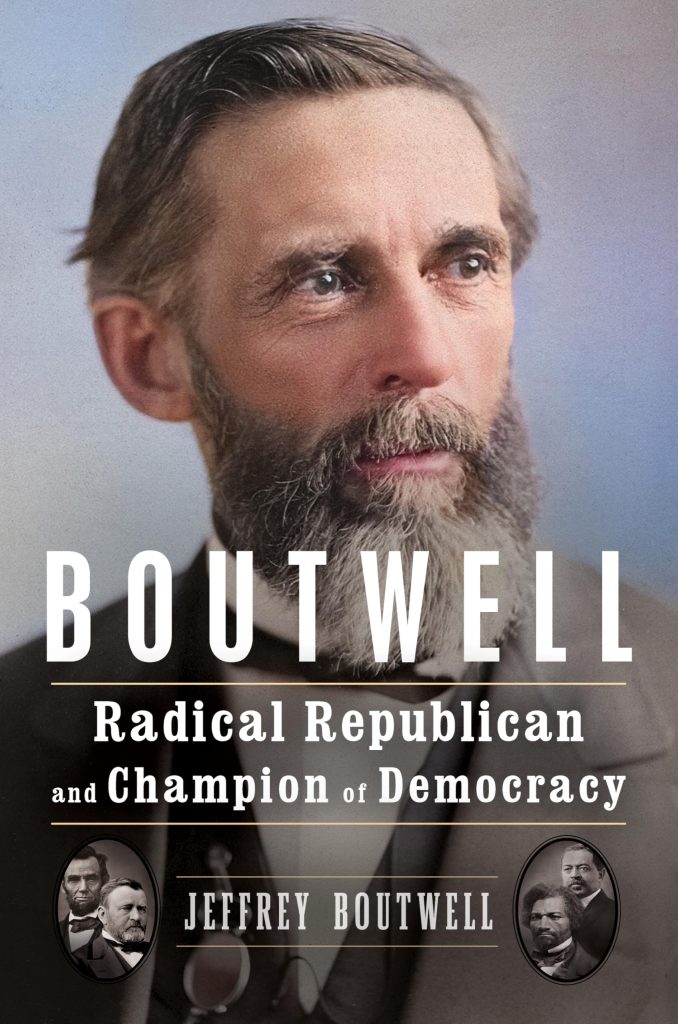

Jeffrey Boutwell is a retired independent historian with a B.A. in History from Yale and a Ph.D. in Political Science from the Massachusetts Institute of Technology. This interview is based on his new book, Boutwell: Radical Republican and Champion of Democracy (W. W. Norton & Company, 2025).
JF: What led you to write Boutwell?
JB: I’m a distant cousin of George Boutwell, but knew little about him growing up. In the past twenty years, though, his name has been appearing more and more in histories of the Republican party, Lincoln and the Civil War, Grant and the Reconstruction era, and Teddy Roosevelt and America’s annexation of the Philippines following the Spanish-American War. I saw there was no major biography of George, despite his being a highly significant public figure who helped write the 14th and 15th amendments to the Constitution, lead the impeachment of President Andrew Johnson, and was president of the Anti-Imperialist League that counted among its members Mark Twain, Andrew Carnegie, Jane Addams, William James, and W.E.B. Du Bois. So, in March 2020, at the beginning of Covid, I got to work.
JF: In 2 sentences, what is the argument of Boutwell?
JB: As a key player in the major issues facing America from the 1840s to the beginning of the 20th century, George Boutwell was equally well-versed in the three main spheres of American politics: domestic policy and civil rights; economic and monetary policy; and foreign affairs and America’s role in the world. His commitment to “redeeming America’s promise” of equality of rights, economic opportunity for all, and the humane use of American power abroad, are as relevant today as 150 years ago.
JF: Why do we need to read Boutwell?
JB: The decades of America’s civil war and Reconstruction era share much with the divisive and polarizing times we live in today. Similar to Abraham Lincoln, George Boutwell treated politics as a “civil religion” that called for humility, empathy, and a sense of common purpose to safeguard the gift of representative government bestowed by the nation’s founders. And, similar to Ulysses S. Grant, with whom he forged a lasting friendship, Boutwell was tenacious in fighting to ensure civic, political, and voting rights for all Americans.
JF: Why and when did you become an American historian?
JB: I’ve loved history since elementary school, reading Kenneth Roberts’ novels about the American colonies and early republic. I majored in history as an undergraduate at Yale, writing a senior thesis on the Paris Peace Conference, and then received a Ph.D. in political science from M.I.T.. focusing on nuclear weapons technologies and arms control. Having retired from a career in public policy, I was captivated by the prospect of writing a full-length biography of a major if unappreciated figure in American history.
JF: What is your next project?
JB: I like to describe George Boutwell as the gift that keeps on giving. His virtually unexplored papers and archive kept by the Groton Historical Society in Groton, Mass., continue to provide new material and avenues for research. Plus, the fact that he was so expert and influential in domestic, economic, and foreign affairs – in one of the most seminal periods in American history – means I’ll have plenty to write about going forward.
JF: Thanks, Jeffrey!